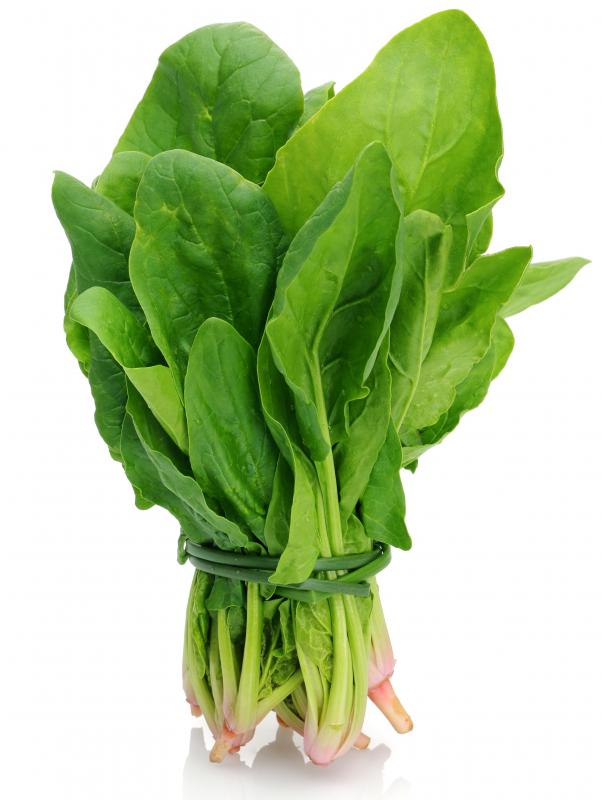At TheHealthBoard, we're committed to delivering accurate, trustworthy information. Our expert-authored content is rigorously fact-checked and sourced from credible authorities. Discover how we uphold the highest standards in providing you with reliable knowledge.
What Is the Function of Carotenoids?
Carotenoids are a beneficial pigment occurring primarily in plants. When eaten by people, some carotenoids are converted into vitamin A, a nutrient essential for the health of the body. Certain carotenoids are converted more efficiently than others, while an entire set of carotenoids are not converted into vitamin A at all and instead operate as antioxidants. The human body is unable to produce vitamin A on its own and requires it to be ingested through different foods. With more than 600 types of carotenoids found in nature, not all are beneficial; some can actually be harmful to the body.
The primary function of carotenoids is to provide the body with vitamin A. This is done by converting specific carotenoids into retinol, a type of vitamin A that is very active in the body. A secondary function of carotenoids is to perform as antioxidants and help to remove free radicals from the blood, offering some protection against cancer and other diseases.

The function of carotenoids in plants is to assist in the production of vital nutrients related to photosynthesis. As a pigment, it also gives certain fruits their red, yellow or orange coloring. Different types of carotenoids are related to specific colors; for example, lutein and zeaxanthin create a yellow color, while carotene creates an orange color. Plants and fungus are able to naturally create carotene; humans are not able to do so.

Vitamin A, one of the results of processing carotenoids, is a necessary vitamin required for good health and the proper functioning of the body. A deficiency in vitamin A can have a serious effect on vision, causing night blindness, clouded vision and, eventually, a complete loss of sight. The vitamin also is important in helping the body fight off fever and other diseases.

Attempts to circumvent a dietary intake of carotenoids by instead taking supplements that contain vitamin A are not as effective as eating foods that contain carotenoids. Some think the function of carotenoids is enhanced by other nutrients contained within the foods. While taking a supplement is better than having no carotenoids or vitamin A at all, the vitamin derived from a supplement is not always absorbed into the body.

Foods that contain high levels of carotenoids include carrots, dark leafy greens such as spinach, and some meats, including liver. Orange foods such as sweet potatoes contain carotene that can be efficiently converted into vitamin A. Red foods such as tomatoes contain carotenoids such as lycopene but they are not converted into vitamin A. Instead, they add to the antioxidants in the body that help to fight diseases such as cancer.
AS FEATURED ON:
AS FEATURED ON:

















Discuss this Article
Post your comments